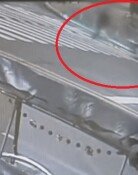The Milk of Sorrow
The Milk of Sorrow
Posted August. 21, 2019 09:36,
Updated August. 21, 2019 09:36

In the middle of the book, two poems are facing each other. The left page is occupied by a poem titled “A Certain Pieta,” and in the right page, there is a poem “The Milk of Sorrow.” One describes the sorrow of the poet, and the other expresses that of a Chilean woman. South Korean poet Ra Hee-deok delicately positioned the two poems side by side in the collection of her poems.
In “A Certain Pieta,” the poet reveals her pain regarding her father’s death, which took place on the day that her own daughter was born. It seems as if life and death are like the two leaves sprouting from the same seed. Just like her father must have held her when she was born, the poet now holds her father’s dead body, and asks in sorrow what kind of a Pieta this would be.
Meanwhile, “The Milk of Sorrow” is based on a film with the same title, which won the 2009 Golden Bear award at the Berlin International Film Festival. The original Spanish title is “La Teta Asustada (The Frightened Teat),” but it was liberally translated in English as “The Milk of Sorrow.”
Yet, the original title is in fact more closer to what the film intends to convey: sheer fear and terror that women must have felt under the dictatorship of Augusto Pinochet when they were subject to sexual violence by government forces.
In normal situations, a baby would feel love through the milk of a mother. In the film, however, Fausta is left with a crippling fear of men, superstition, and trauma with her mother having been raped. This is why Fausta always walks so close to walls and has placed a potato in her body to dissuade any attempts of sexual abuse. Whenever fear tries to overwhelm her, Fausta starts to sing a song. Singing is all she does.
The poet, who struggles to move on with her life after her father’s death, placed the two different poems next to each other, probably because she empathized with the Chilean woman who tries to overcome the fear inherited from her mother through songs. What these poems show is nothing but the solidarity of sorrow.







